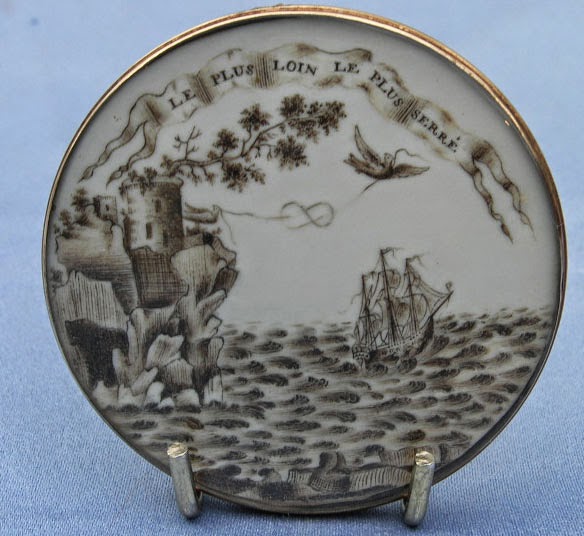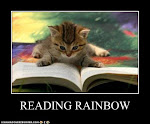In 1805, much of Europe - and Great Britain - was embroiled in war - one phase of the Napoleonic wars. The combined fleets of France and its ally Spain were massed at Cadiz, and the British and their allies were growing nervous. Enter Horatio Nelson, Viscount of the Nile, with a scad of ships to command and some exceedingly clever, new battle tactics.
On 21 October 1805, the British met with French & Spanish fleet in battle - the Battle of Trafalgar, won by the British, and memorialized by the very famous Trafalgar Square and its statue of Nelson atop a column.
Nelson's
rout of the Franco-Spanish fleet, whose losses included 18 ships, 6,000
killed or wounded, and over 20,000 taken prisoner, so stung Napoleon
that he never initiated another naval campaign. The battle, and Nelson, became a large part of British national mythology. Nelson's death aboard the HMS Victory, captained by Thomas Hardy with whom Nelson had sailed since the mid-1790s, is a big part of that mythology; shot while on deck at the pitch of battle, Nelson hung on to life for three more hours, long enough to learn that a number of the enemy's ships had surrendered. Never under any illusions about the severity of his injury, Nelson prayed, asked to be remembered to friends and family, and, at the very end, said "Kiss me, Hardy," to his captain. Commonly believed to be his last words, "Kiss me, Hardy" was actually
not the last thing Nelson said (it was the made-for-propaganda "god and my country"). But accuracy doesn't matter that much in national myths, and "Kiss me, Hardy," has resonance as the last words of one of the greatest British heroes.
"Kiss me, Hardy," has resonance throughout Elizabeth Wein's phenomenal
Code Name Verity, as well. One of the brilliant but unusual aspects of Wein's book is that to discuss many details of it, even minor ones, is to destroy part of its effectiveness as a whole. Going into reading it, I knew nothing at all about the book except it was a WWII novel and people had said it was great.
I read it in about half a day; I forced myself to put it down for a few hours in the early evening, but by 10pm had picked it up again, and didn't stop until the very end. I cried my face off, almost continuously from about the midpoint to the end - but that's not giving anything away, either.
The main characters are young women (old teenagers, really) volunteering in the British War Effort around 1943. One is a pilot, supremely skilled at navigation and mechanical work; one is multi-lingual, exceedingly clever and quick on her feet, a great actress. Both become involved in secret operations - spy work, really - for the British. Wein makes wonderful use of
Peter Pan, as well, something I always enjoy encountering, and in this case, enjoy even more, because Wein - unlike so many others - seems to get the tragedy at the heart of
Peter Pan, the melancholy of it - and it's not that children have to grow up.
That's all I'll say, because again - to say more is to ruin the unfolding of the book, and its unfolding is a key part of the narrative. Wein's novel is one of those rare examples where the interdependent relationship of story and form is so great as to be absolutely unmistakable even to the least perceptive of readers. How the tale is told is always important, of course, but
Code Name Verity takes that concept to glorious new heights.
It is not a short book, nor even a quick read, though I did run through it in a day (but I am a quick reader). Any passages that may feel too slow, too irrelevant, too random - they all pay off in the end, in quantity. You
will turn back chapters to re-read passages, conversations, explanations, and you
will get shivers down your spine as realization seeps in.
So far this year I haven't read as many
great books as I would have liked (especially compared to last year's bumper crop).
Railsea, this spring, was great, intellectually, creatively, imaginatively, literarily.
Code Name Verity was great creatively, literarily, historically (Wein has clearly, clearly done her homework), but above all
emotionally. Wein somehow manages to weave incredible depths of emotion - of all kinds, really - into her book; you get caught in the web almost instantly, and it only binds tighter as the novel progresses. It is a
devastating read, and wonderful in its devastation.
I'll cast my vote now for
Code Name Verity for every prize it could possibly receive. I don't think I've been so blasted, so pulled in and wrung out, by a novel since reading
How to say goodbye in robot, and I think
Code Name Verity has actually outdone even that. It's a far, far, far more meaningful meditation on famous last words than
Looking for Alaska could ever hope to be.
Because in Wein's hands, those famous last words (that weren't, really, the last words at all) of Nelson's - that "Kiss me, Hardy" - take on an almost unbearable, haunting meaning, an emotional verity that outstrips almost anything else i can think of.
Kiss me, Hardy.
I'll leave a window open.









